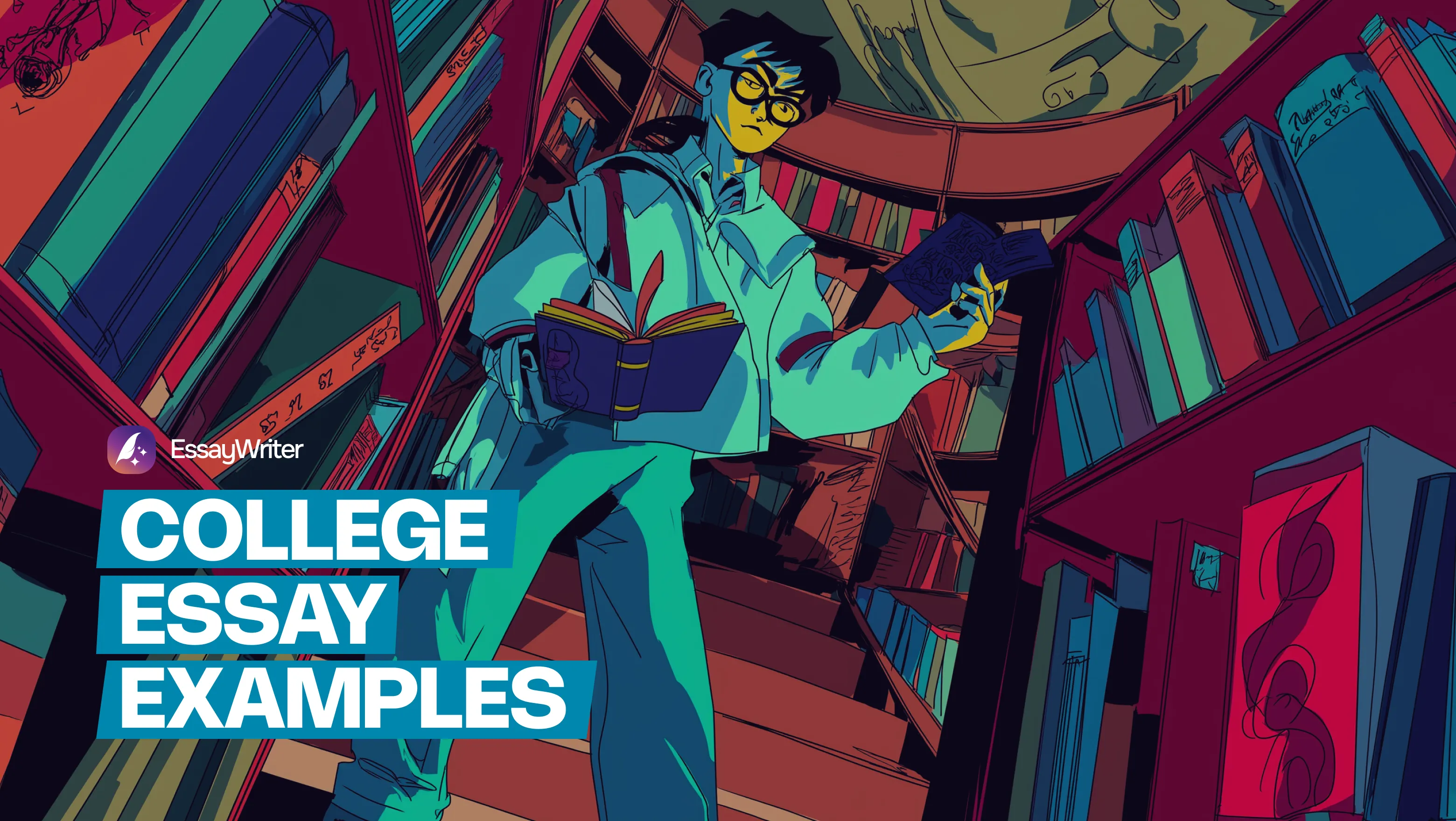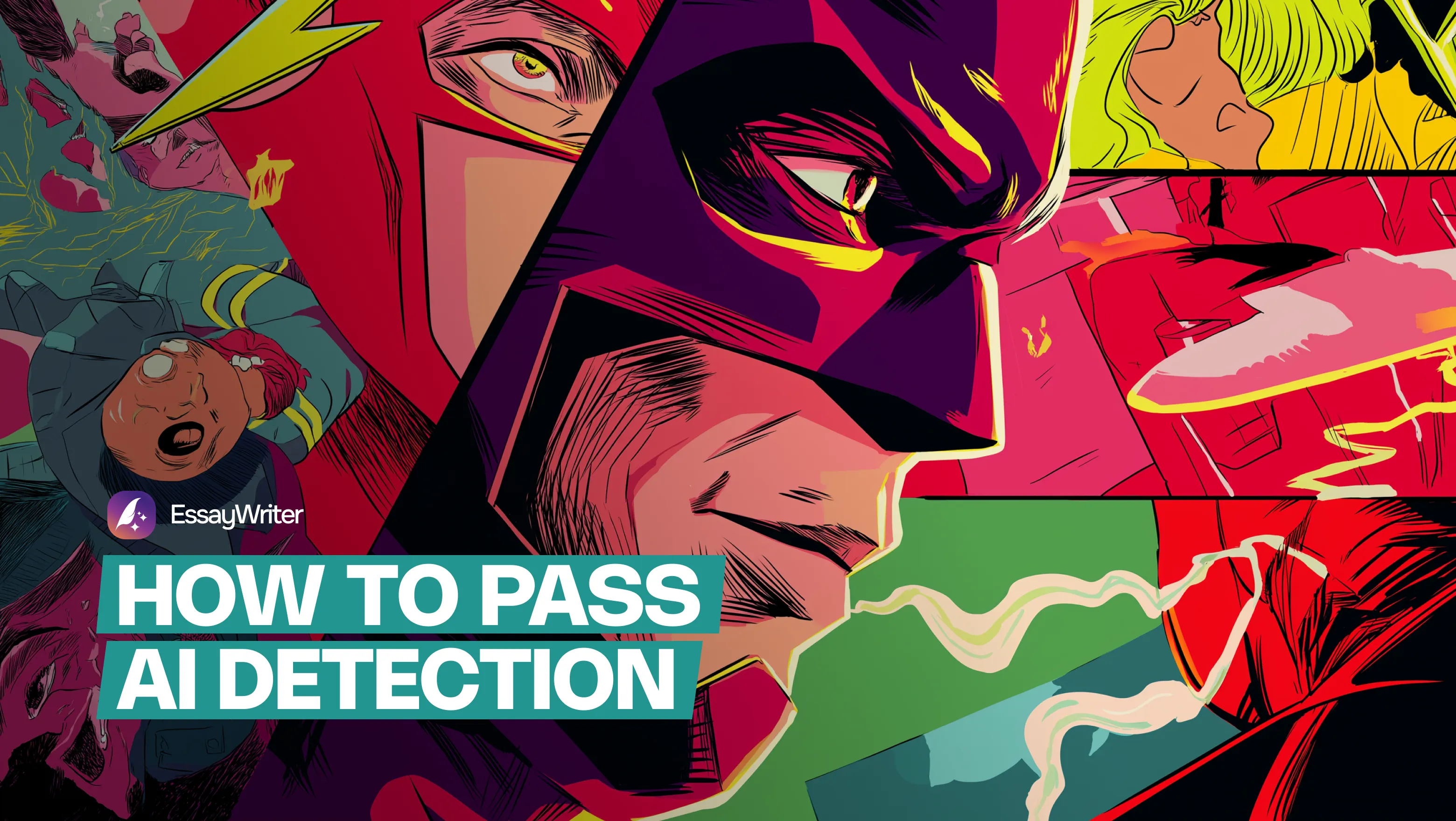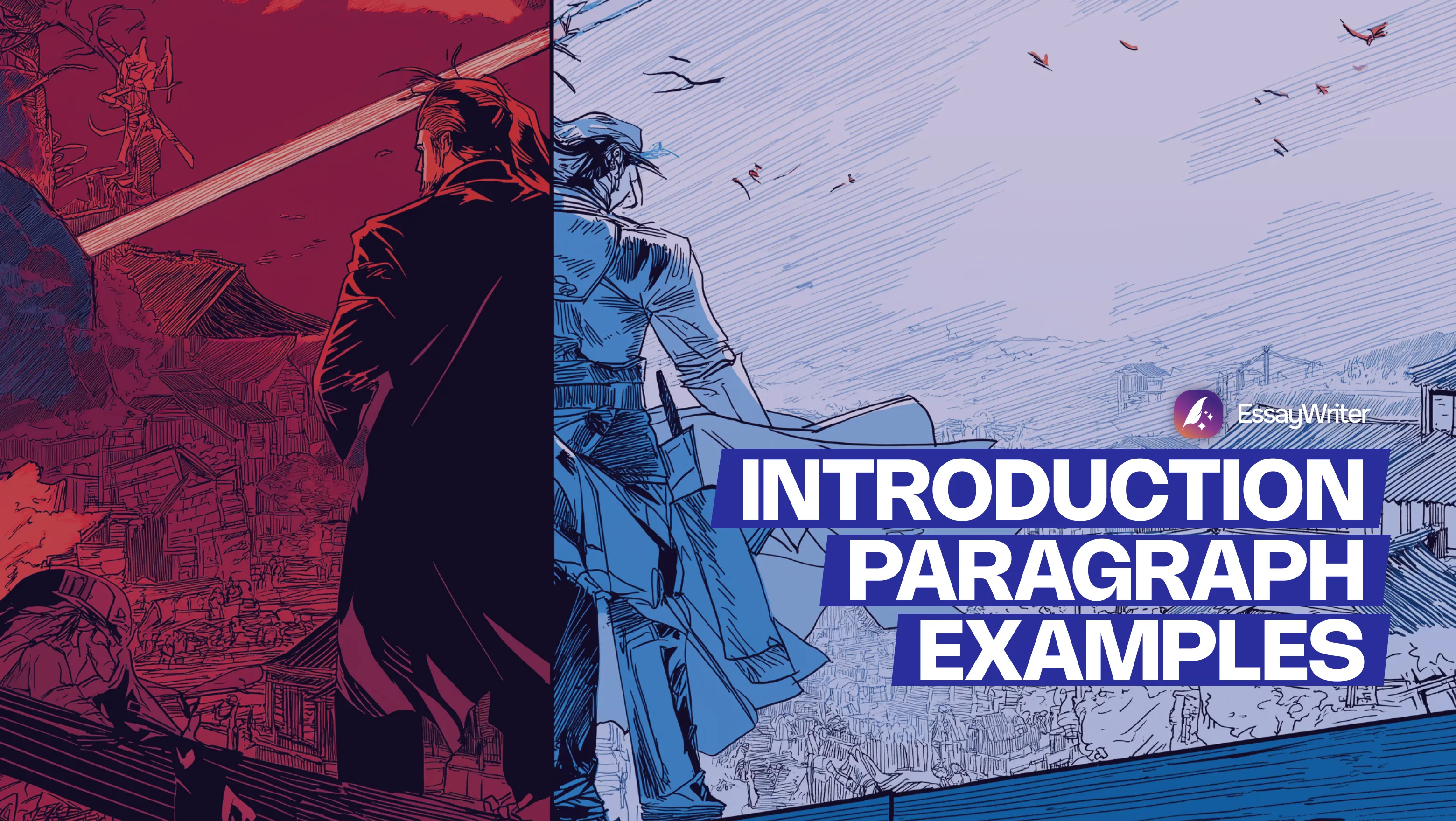AI usage doesn’t automatically mean plagiarism. The real question is how you use it, not whether you use it or not. It can be a study tool if you lean on AI for brainstorming or drafting, for example. But if you copy an output word-for-word and claim it as your own… that’s already risky.
Schools care about originality, which is why this article will teach you the boundaries. And if you decide you need a human hand after all, our essay writer can step in and take over your assignments so you don’t put your academic integrity on the line.
Juggling One Too Many Deadlines?
Trust our professional academic writers to deliver 100% original content so you can step away for a bit.
Get Essay Help
What Is Plagiarism?
Plagiarism means taking another person’s work and presenting it as your own. For example, when someone copies text directly or rewrites it very closely without disclosing the original source. The main problem here is the lack of proper acknowledgment, which misleads the reader. As a result, you create a false impression of originality.
In education, plagiarism is viewed as a breach of trust. It can damage a student’s reputation and academic record. Clear attribution shows respect for the effort behind the source and proves that your writing is both honest and original, which is the foundation of academic integrity.
How AI Generates Content
AI can’t pull ideas out of thin air without instructions. You give it a prompt, and boom! The text is in front of you faster than you can sip on your coffee. But that witty response doesn’t come from original thought; it’s pulled together from all the stuff it saw during training. That’s where things get more than a little tricky.
These tools are trained on content written by humans who probably had no idea they were the ones feeding the chatbots. For instance, according to OpenAI, ChatGPT was trained on “vast amounts of data from the internet.” Is that lack of specificity fascinating or a bit terrifying? Most of this “vast data” comes from the crawlers that scrape websites without asking. Technically, it’s not illegal. Ethically? Let’s just say we didn’t exactly hand over permission slips.
So, why does this all matter? Because when you use AI to generate content, you’re probably getting a remix of someone else’s work without even realizing it. That’s why the question of Is AI generated text plagiarism remains relevant: sometimes, the bot borrows without thinking twice.
Is Using AI Plagiarism?
The question many students ask is simple: is using AI plagiarism? The answer depends on the way it is applied. AI does not copy specific sources in the traditional sense, since it produces text by drawing on patterns. The issue appears when someone turns in AI writing without adding their own contribution. In such cases, the work can be judged as plagiarism because it lacks authorship and clear acknowledgment.
Schools place value on originality and honesty. Using AI to shape drafts is okay, as long as the final version reflects the student’s originality. In cases like this, AI can be seen as a supportive tool rather than a violation. The difference comes down to whether the writer remains transparent about the process. Students who keep this in mind can rely on AI as a guide and still submit authentic work that meets academic expectations.
Our article on - is ChatGPT plagiarism free takes a closer look at how the tool handles originality concerns.
Where AI-Generated Content Is Considered Plagiarism
So, is AI considered plagiarism? That’s not exactly a straightforward question to answer. Everything depends on how you use it. AI on its own produces texts through patterns, so it’s clearly not copy-pasted. You cross into plagiarism when you hand in the output without credit or personal effort. Schools care about originality, as we said, so there are a handful of situations where AI-generated work can be considered plagiarism:
- When a student turns in AI text with no added thought or revision.
- When the material is lifted word-for-word and passed off as original.
- When the involvement of AI is hidden instead of acknowledged.
- When AI content replaces the deeper process of research, analysis, or proper citation.
Why AI-Generated Content Might Not Be Considered Plagiarism
Most situations involving AI don’t end in academic scandals, as content doesn’t always ring the plagiarism bells. In fact, with transparency and a clear purpose, some uses are completely legitimate. Here’s when we can say a safer no to whether is it plagiarism to use AI:
.webp)
- No shady intentions: Plagiarism comes from a person’s intent to steal someone else’s work. AI doesn’t sit around scheming how to do that, obviously. It’s kind of hard to pin the intent to deceive on a bot that doesn’t know what academic integrity means.
- No copy-paste behavior: Most AI-generated content is stitched together from countless data from all over the internet, not direct copying. The output is a remix, not a clone, so it can be considered somewhat “original,” even though it was done by a bot.
- It’s all in the prompt: Depending on the input, AI responses can be almost scarily specific. A custom prompt can give you a completely unique result, even with the public training data. The ability to customize the output so specifically can create content that steers clear of plagiarism concerns.
- Used for learning, not cheating: AI can save students a lot of time on more time-consuming tasks like breaking down tougher topics or building outlines for essays. Is using AI plagiarism with this intention? As long as you’re not submitting anything as your own work, it’s all good.
- Everyone’s in the loop: As long as everyone agrees to use AI and is upfront about it in group projects or teams, it’s not plagiarism. It’s just efficient teamwork.
How To Use AI Without Plagiarizing
Honestly, all you need to understand how not to plagiarize when using AI tools are a few right habits and a little strategy. This way, you can let the bots lend a hand but still keep your integrity intact. Here are a few tips you should follow to keep your work clean but still stay on top of all your classes:
- Take notes like a pro: Don’t copy points straight from a source. Jot down what you got from the entire section in your own words and record where the info came from while you’re at it. Trust us, you’ll be happy when it’s time to cite.
- Paraphrase: Opening the thesaurus and swapping a few words with clever synonyms might not do the whole trick here. You need to paraphrase to avoid AI detection by actually rephrasing ideas with your own words (and still give credit to the original author!)
- Quote it: Like the way someone says what you’re trying to say? Keep the quote intact. Use quotation marks, tag the author, and include the source so the readers don’t have to guess where the brilliance came from.
- Own your insights: Use phrases like ‘I believe’ or ‘In my opinion’ if you’re talking about your ideas. When using others’ ideas, cite properly.
- Check before you submit: Run your work through the EssayWriter Plagiarism Checker before you submit it just to be on the safe side. It’s a quick and easy way to catch unintentional similarities and keep your writing 100% authentic.
The Bottom Line
No one is denying how cool AI is: it can clean up your grammar, get you started on a rough draft, and even untangle whatever mess your brain made during an all-nighter. Neither can we ignore the fact that it’s not slowing down anytime soon. But we’ve seen that it’s not magic or original; plus, it definitely won’t take the fall if your professor thinks you crossed the line.
So, have we answered the big question: is using AI plagiarism? Probably not in full, as the jury is still out on that one. But here’s the truth: AI is definitely a handy assistant as long as you don’t overuse it. Remember, the real flex isn’t how well you work the prompts but rather how well you can create papers that sound like you, not a robot.
FAQ
Is Using AI To Write An Essay Plagiarism?
It does if you let it write your whole essay and pass it off as entirely yours. Using AI to brainstorm ideas or get unstuck is smart work, but your name probably doesn’t belong on that paper if you’re not putting in your own ideas.
Is It Considered Plagiarism To Use AI To Correct Grammar?
Nope, cleaning up your grammar with AI is definitely not plagiarism. It’s still your writing, just with fewer typos.
Is Copying AI Plagiarism?
It can be. Things can get sketchy if you go ahead and directly copy-paste what the bot gives you as if you wrote it. Even though AI isn’t a person, the words still aren’t yours.
- Andrew D. Beman-Cavallaro, M.-U. L. (2024, March 11). LibGuides: AI Tools and Resources: Plagiarism and Generative AI. Guides.lib.usf.edu. https://guides.lib.usf.edu/c.php?g=1315087&p=9678778
- Curriculum, W. A. the. (2024). Plagiarism and AI - carleton college. Www.carleton.edu. https://www.carleton.edu/writing/plagiarism/plagiarism-and-ai/
Recommended articles
.webp)


